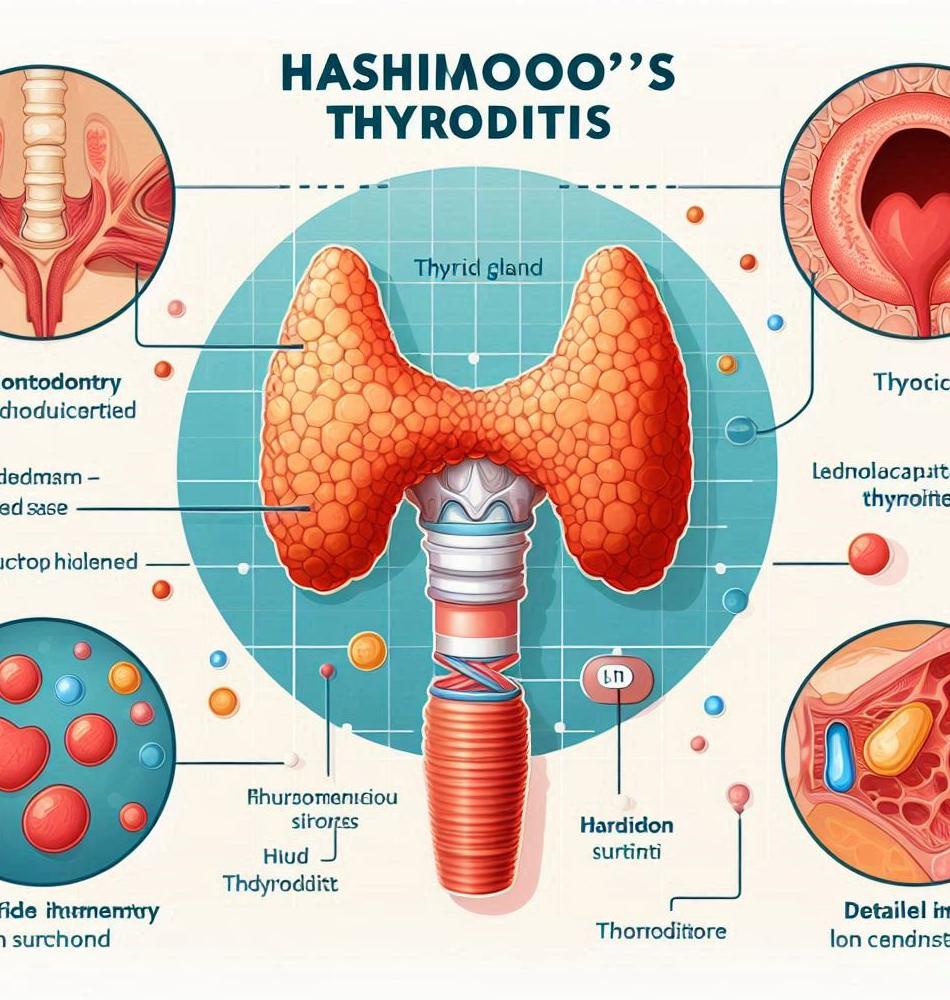Understanding Thyroiditis: Diagnosis and Insights 📊
As one of the most vital glands in the human body, the thyroid plays a crucial role in regulating metabolism, energy levels, and overall hormonal balance. When something goes awry with this small, butterfly-shaped gland, it can lead to various health issues, collectively referred to as thyroiditis. This article explores the intricate process of diagnosing thyroiditis, a condition that manifests in several forms. Let’s dive into the world of thyroiditis, unravel its symptoms, and understand how healthcare professionals classify and diagnose this condition.
What is Thyroiditis? 🔍
Thyroiditis is an inflammation of the thyroid gland, which can disrupt the normal functioning of this gland. There are different types of thyroiditis, with the most common being Hashimoto's thyroiditis, subacute thyroiditis, and postpartum thyroiditis. Each type presents with unique symptoms and requires specific diagnostic approaches.
Types of Thyroiditis 📚
Understanding the different types of thyroiditis is critical for diagnosis:
1. Hashimoto's Thyroiditis
This is an autoimmune disorder where the immune system attacks the thyroid gland, leading to hypothyroidism. Symptoms may include fatigue, weight gain, and sensitivity to cold.
2. Subacute Thyroiditis
Often triggered by viral infections, this type causes painful inflammation and sometimes results in hyperthyroidism followed by hypothyroidism. Symptoms usually include neck pain, fever, and fatigue.
3. Postpartum Thyroiditis
This is a temporary condition that can occur after childbirth, marked by fluctuations in thyroid hormone levels. Symptoms often include mood swings, anxiety, and fatigue.
Common Symptoms to Observe 📖
Identifying the symptoms is the first crucial step toward diagnosing thyroiditis. Here are some common signs that could indicate thyroid inflammation:
- Fatigue or lack of energy
- Weight changes (gain or loss)
- Depression or mood swings
- Changes in skin and hair (dryness or thinning)
- Cold intolerance or hot flashes
- Swelling at the base of the neck
- Difficulty concentrating or brain fog
- Changes in menstrual cycle
The Diagnostic Process for Thyroiditis 🩺
Diagnosing thyroiditis involves a combination of medical history, physical examination, laboratory tests, and imaging studies. Here’s a closer look at each component:
1. Medical History and Physical Examination
The healthcare provider will begin by taking a thorough medical history. Key questions may include:
- Do you have a family history of thyroid disease?
- Have you experienced any recent infections or hormonal changes?
- What are your symptoms, and when did they start?
A physical examination will focus on the neck for signs of swelling and tenderness, which can help in suspecting thyroid inflammation.
2. Laboratory Tests 🔬
Blood tests play a vital role in diagnosing thyroiditis. The following tests may be performed:
- Thyroid Function Tests: These tests assess levels of Thyroid Stimulating Hormone (TSH), Free T4, and Free T3 to determine thyroid activity.
- Antibody Tests: Testing for antibodies like anti-thyroid peroxidase can help indicate autoimmune thyroiditis, common in Hashimoto's.
- Thyroglobulin Levels: Elevated levels may suggest inflammation in the thyroid gland.
3. Imaging Studies
In some cases, imaging studies, such as an ultrasound of the thyroid gland, may be recommended to examine the size, structure, or presence of nodules. This can help distinguish thyroiditis from thyroid cancer or other abnormalities.
Frequently Asked Questions About Diagnosing Thyroiditis ❓
- What is the main cause of thyroiditis? Various factors, including autoimmune reactions, viral infections, and certain medications, can contribute to thyroiditis.
- Can thyroiditis be diagnosed through a routine check-up? Yes, abnormal thyroid function results in routine tests can prompt further investigation for thyroiditis.
- How long does it take to diagnose thyroiditis? The diagnostic process typically takes a few days to weeks, depending on the tests required.
- What treatments are available for thyroiditis? Treatment options can range from medication for hormone regulation to lifestyle changes and dietary adjustments.
Managing Thyroiditis 🛠️
Once diagnosed, management of thyroiditis may vary based on the type and underlying cause:
1. Medications
For Hashimoto's thyroiditis, hormone replacement therapy with levothyroxine is common to maintain normal levels. Patients with subacute thyroiditis may require anti-inflammatory medications to relieve pain and inflammation.
2. Regular Monitoring
Regular follow-up appointments and lab tests are essential for tracking thyroid hormone levels and adjusting treatments as necessary.
3. Diet and Lifestyle Changes
A well-balanced diet rich in iodine, selenium, and zinc may support thyroid health. Incorporating stress-reduction techniques such as yoga or meditation can also be beneficial.
Conclusion 🔚
Thyroiditis is a multifaceted condition that requires careful evaluation and diagnosis. By understanding its symptoms, the diagnostic methods, and management options, individuals can become more proactive in their health journey. If you suspect you are experiencing symptoms related to thyroiditis, it is essential to consult a healthcare professional. Early diagnosis and appropriate treatment can significantly improve quality of life and overall health. Remember, your thyroid health is crucial to your overall well-being, so take charge and stay informed!
.png)






